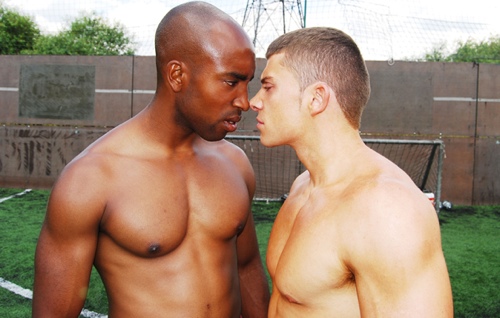
Whatever your background is or who you are, there are times when every one of us feels like there is something working against us. Many actors and creatives come up against obstacles when trying to make it in the acting game. In this industry we cannot hide; our gender, our ethnicity, they all come into play, particularly in casting. But what about our sexuality? And how can we be sure that these are not the very things that are holding us back?
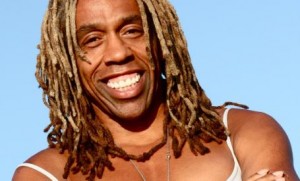 Actor, writer and director, Rikki Beadle-Blair (pictured, right), says ‘I get people coming into my career clinics saying they feel bound in by their ethnic origins but it’s not confined to people of colour – it’s women, older men, disabled people and white middle class, athletic, heterosexual men – who the world seems to be built around – who all feel just as trapped.’ It is an attitude which he takes into his own work. When writing a play, Rikki will cast it before it is written and only then, after listening to the actors and what it is they want, will he begin to put words down on the page. ‘It’s about opening my mind to how I approach the actors and the characters’, he explains. ‘I always start by asking actors what it is they want to play, and very often a lot of people will say, “anything, just so long as I am working”, even after they’ve just told me that they want to stay clear of their stereotype. However, the truth of the matter is that really they do want to represent their social type, it’s just that they’re dissatisfied with the limited way that minorities might be presented in mainstream drama.’
Actor, writer and director, Rikki Beadle-Blair (pictured, right), says ‘I get people coming into my career clinics saying they feel bound in by their ethnic origins but it’s not confined to people of colour – it’s women, older men, disabled people and white middle class, athletic, heterosexual men – who the world seems to be built around – who all feel just as trapped.’ It is an attitude which he takes into his own work. When writing a play, Rikki will cast it before it is written and only then, after listening to the actors and what it is they want, will he begin to put words down on the page. ‘It’s about opening my mind to how I approach the actors and the characters’, he explains. ‘I always start by asking actors what it is they want to play, and very often a lot of people will say, “anything, just so long as I am working”, even after they’ve just told me that they want to stay clear of their stereotype. However, the truth of the matter is that really they do want to represent their social type, it’s just that they’re dissatisfied with the limited way that minorities might be presented in mainstream drama.’the good thing about being typecast is that the word ‘cast’ is in there
Rikki regularly holds clinics and workshops at the Actors Centre, in which he shares his methods of a pro-performance, pro-active focus to yourself and your career. He points out that, ‘Everyone is typecast but the good thing about being typecast is that the word ‘cast’ is in there. They are trying to cast you. You may not want to play what they’re giving you but the first thing is to get into the game.’ Rikki’s approach is to turn your perception on its head; think less about what you want from others and much more about what you are able to give them. ‘You have to inspire people into seeing you in a different way. If you want to be seen, you have to see. If you want to be heard, you have to hear. Otherwise you’re asking people to do something which you are not prepared to do yourself. The methods I’m sharing with people are ones which I use myself and my company has exploded since I started using them. I could not be happier.’ Even when dealing with prejudice, Rikki’s advice is not to close the door, ‘Don’t just dismiss them, understand where they’re coming from and what they’re doing: see them and then deal with it from there.’
So it is about you. If you go into a room uncomfortable with yourself or unhappy about who you are, or even not believing in yourself, how can you expect someone else to? At least, in the UK, we have a culture of mutual respect, something which is perhaps not so prevalent in America.
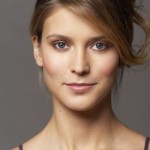 After 14 years in the business, actress Charlotte Salt (left) has an impressive portfolio of work both here and in LA, but although the work has been pretty steady it has not been easy, and there are noticeable differences between London and Hollywood, which she had to quickly adapt to. ‘In America, it’s super male dominated and you’re just another piece of meat. They assume you have done nothing and that you’re just trying to get lucky like the boat-loads of girls they get in all the time.’ But Charlotte did not let this put her off. ‘You have to fight their perceptions and show them what you’ve got. It’s rewarding, especially when you see the look of shock on their face when they realise you can actually act. That’s not to say that it’s always like that in America. Once you reach a certain level there is a greater respect for actresses, greater parts to be played. But, at the bottom, whilst you’re trying to work your way up they just can’t see beyond what you give them.’
After 14 years in the business, actress Charlotte Salt (left) has an impressive portfolio of work both here and in LA, but although the work has been pretty steady it has not been easy, and there are noticeable differences between London and Hollywood, which she had to quickly adapt to. ‘In America, it’s super male dominated and you’re just another piece of meat. They assume you have done nothing and that you’re just trying to get lucky like the boat-loads of girls they get in all the time.’ But Charlotte did not let this put her off. ‘You have to fight their perceptions and show them what you’ve got. It’s rewarding, especially when you see the look of shock on their face when they realise you can actually act. That’s not to say that it’s always like that in America. Once you reach a certain level there is a greater respect for actresses, greater parts to be played. But, at the bottom, whilst you’re trying to work your way up they just can’t see beyond what you give them.’There is no denying Charlotte’s appeal: she is a beautiful, mid 20s, well-spoken English rose – a category that is perhaps far over-subscribed in this industry and so the competition is high. But she feels that things are getting better as more female crew come onto the scene, ‘It’s harder for women. There are less roles and more competition, especially at a young age, and roles seem to be written very much in a man’s favour, but I think we are now starting to see glimmers of hope, as more strong female roles push through.’
What does she think got her to where she is now? ‘Persistence. The key to my success is just never giving up. There were times when I felt that I was playing the same part over and over again and then, before I knew it, I had been given something that’s completely different. You get a lot of respect for constantly shaking it up and changing things and, through that respect, you get work.’
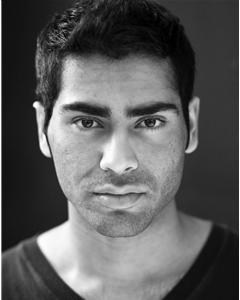 RADA graduate John Bosco (right) believes in sticking to his guns doing only the work that he believes is right for him. He will very often choose theatre over film because it is important to him that he remains challenged. ‘There are things that I chase and others that I don’t put my heart into. It’s not that I don’t want to do screen roles, it’s just that I find that there are far more roles that interest me in theatre. The majority of roles I have been offered for screen have been for very generic, stereotypical, Asian characters.’
RADA graduate John Bosco (right) believes in sticking to his guns doing only the work that he believes is right for him. He will very often choose theatre over film because it is important to him that he remains challenged. ‘There are things that I chase and others that I don’t put my heart into. It’s not that I don’t want to do screen roles, it’s just that I find that there are far more roles that interest me in theatre. The majority of roles I have been offered for screen have been for very generic, stereotypical, Asian characters.’if you can play all sorts of parts as a working professional then it shouldn’t be about who you are, as a person
It is an impressive stance. There are some who find the lure of money in film too tempting to say ‘no’ to, even if it means sacrificing the quality of roles. And though John is realistic about the situation in the industry, he does not rule out the possibility of it changing. ‘Saying that I would never be cast in a Noel Coward is me simply going on what I have seen from watching theatre. I would hope that one day it would happen because Coward is my favourite writer and I would love to be in one of his plays – it’s the kind of thing that I could play so completely naturally.’
Heritage aside, has John’s sexuality has ever been an issue during his career? ‘I’ve only ever played one gay part and it was the most challenging role that I’ve ever played to date. In film, once you’re ‘gay’ in the film industry, you’d never be cast as a love interest again because people can’t see past that. But it’s never been an issue when I’ve gone for auditions or the parts I’ve been put up for. And I think that’s part of acting – it shouldn’t be an issue – if you can play all sorts of parts as a working professional then it shouldn’t be about who you are, as a person.’
And that is the crux of the argument. Why should you suddenly not be considered for roles, especially if previously you have played them well, just because your sexuality has somehow come into it? John’s advice is, ‘If you have an agent, talk to them. Also, challenge yourself. Work on parts that you wouldn’t naturally be put up for so that if you ever get the opportunity to audition for them, you can really nail it and not feel uncomfortable. That’s all you can do, in a practical sense, and hope to build up a portfolio that speaks for itself.’
Making a transition from one genre to another can also be hard. Ballsy comedienne, Olivia Lee (below, left), found making the transition from presenter to comedy a bit of a balancing act. ‘I’m all for being flexible and organic with these things and taking whatever work comes up but you do have to be a bit thoughtful about where you position yourself.’
Make sure you’re good at what you want to do and be honest with yourself
![Olivia1[1].jpg](http://www.fourthwallmagazine.co.uk/wp-content/uploads/Olivia_Lee-150x150.jpg) The hard work has paid off, the second series of her comedy show Olivia Lee’s Naughty Bits aired in the spring of 2011 and was a resounding success. But she is very keen to highlight the importance of being real to yourself. ‘I think people have a notion of what they want to do, but you have to be realistic about what you’re good at. I wanted to play Lady Macbeth but the reality was that I was better at comedy – making a tit out of myself. Make sure you’re good at what you want to do and be honest with yourself. If you want to be a dramatic actress, then make sure you’re as good as the Kate Winslets of this world because if you’re not, you can forget it because that is who you will ultimately be competing with.’
The hard work has paid off, the second series of her comedy show Olivia Lee’s Naughty Bits aired in the spring of 2011 and was a resounding success. But she is very keen to highlight the importance of being real to yourself. ‘I think people have a notion of what they want to do, but you have to be realistic about what you’re good at. I wanted to play Lady Macbeth but the reality was that I was better at comedy – making a tit out of myself. Make sure you’re good at what you want to do and be honest with yourself. If you want to be a dramatic actress, then make sure you’re as good as the Kate Winslets of this world because if you’re not, you can forget it because that is who you will ultimately be competing with.’Comedy is another male dominated sector of the industry and women especially have to work hard to be taken seriously. ‘In comedy, as a woman, I feel that I have to work that little bit harder. Doors open more naturally for men, whilst women have to knock that bit harder.’ The hard work does pay off. Olivia says, ‘Just keep at it. Don’t take no for an answer and work your bollocks off’.
Perseverance is a necessary requirement if you are going to get anywhere in the industry, as well as not letting rejection get you down. In this town, rebuttal is the name of the game. Perhaps the stereotype is one that you can enjoy and embrace? Adam Deacon (below, right) has been acting professionally since he was a teenager and, although he has been stereotyped, he has been proud to represent street culture, as he has grown up and lived within it all his life. But it was important to him to get that stereotype right. ‘Look at a film like Kidulthood. Even though it was written brilliantly, for me it didn’t have that authentic dialogue and luckily Noel let me do my thing. I went from job to job actually chucking the scripts away and improvising my scenes and making it more real.’ But that is not to say that he is not concerned. ‘I’ve never worried about it before because I’ve always loved playing these parts but because the industry sees you do one job and you do it well, they always want to cast you as that. I’ve turned down four films in the last month because it’s the same thing – it’s about me playing a drug dealer. And that’s part of what Anuvahood was about – the only way I can really start changing people’s perceptions of me and breaking that mould is if I start writing and directing my own work. That way, I can make my own characters up. And even though Anuvahood is still street, I’ve tried so hard to get that comedy out of it. You can’t rely on the industry to change their mind about you, you have to go out of your way to prove to them.’
Take your time, learn your craft and the money will come
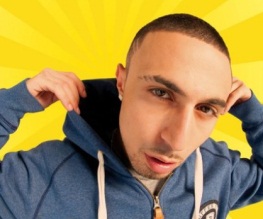 Anuvahood has been a fantastic personal and professional success for Adam and he admits that though he loves the theatre, he veers more towards film. ‘You can experiment a lot more in theatre and I’ve done plays where they have been completely different to what I’ve done in film or TV, but then there is only a limited number of people who will see or know about that work. So, my thing now, is to portray that into film and do different roles in that medium.’
Anuvahood has been a fantastic personal and professional success for Adam and he admits that though he loves the theatre, he veers more towards film. ‘You can experiment a lot more in theatre and I’ve done plays where they have been completely different to what I’ve done in film or TV, but then there is only a limited number of people who will see or know about that work. So, my thing now, is to portray that into film and do different roles in that medium.’Adam is not disillusioned and his message to anyone trying to break into the industry is clear, ‘Stereotyping is going to happen. The acting game does do that to you. I can’t really mention many actors who, when they start off, don’t get pigeon-holed. But I find with street culture we tend to dwell on that more whereas we don’t necessarily ask Hugh Grant why he always plays the upper class, witty, Englishman. Keep up-to-date with what is going on in the industry and in your area and get involved. Then, once you do get involved, don’t be in a rush. Take your time, learn your craft and the money will come and don’t be put off by rejection because there is a lot of it.’
Black, gay, white, straight, male, female, Asian. This is a culturally diverse industry. Of the actors Fourthwall spoke to, in comedy and in straight drama, TV, film and theatre, no-one moaned, no-one complained. Instead, each provided a beacon of light for the masses to follow in their footsteps on the path to positivity, pro-action and ultimately, success.
– HB
Be the first to comment